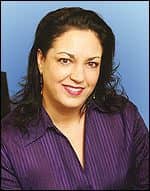“The Bearded Biomed” (aka: Chace Torres) sits down with 24×7’s chief editor Keri Stephens to discuss why he’s planning to take the certified biomedical equipment technician, or CHTM, exam and why he endorses certification in the HTM field.
Podcast Transcript
Keri Stephens:
Hi, this is Keri Stephens, and welcome to the MEDQOR Podcast Network. I’m the Editor of 24×7, and I’m here today with my wonderful co-host, Chace Torres, aka The Bearded Biomed. And today we’re going to be talking about education and credentialing in the biomed field, because Chace is currently pursuing his CHTM degree. Chace, what led to this and why do you think credentialing in the HTM field is important?
Chace Torres:
The pursuit of the CHTM has basically rooted from my need to constantly seek higher education. Our field in general calls for seeking that in general, simply because it’s in direct support of the medical field, always growing, always changing. We have to meet that demand by continuing our education. CHTM facilitates that for me specifically, simply because I want to move it into a management role within my career. And a lot of the senior biomeds that I idolize, that I follow, that I seek advice from, it’s one of the main things that they suggest that I pursue, being the CHTM.
Chace Torres:
Of course there’s a lot of other certifications. And in regards to the importance of seeking credentialing, especially which AAMI has so thoroughly standardized for us through the ACI certification program, it’s a standard to really set yourself apart from, one, from your colleagues. It really adds credibility to you as a technician saying that, “Hey, I give a crap about my job, my career. I’m willing to go out there and pursue higher echelons of education and show that I have what it takes to take that next step in my career advancement.”
Chace Torres:
And honestly it, like I said, it demonstrates your commitment to the industry. And it’s also going to hopefully increase your pay, along with responsibilities as well as a technician, or in my case, a manager.
Keri Stephens:
And have you heard anyone say, “Well, that’s not really necessary.” Have you had me pushback from when you decided to pursue this?
Chace Torres:
I haven’t had any pushback, no. I did have the mindset at some points in time in my career where I felt I didn’t need a certification at that time. But then again, I was also doing online schooling while I was working full-time, and throwing a certification into that mix didn’t really seemed palpable to me.
Chace Torres:
But in regards to the general biosphere of the biomed, I think it’s pretty much universally recognized that certifications are an important aspect of our field.
Keri Stephens:
And do you see more of the younger generation being more on board with the certification, and maybe more of the old timers being more reluctant to get certified in the biomed field? Since I know it’s not always necessary to have these certifications.
Chace Torres:
See, it’s interesting that you proposed it that way too, because I’ve actually had a mixed bag of that. A lot of the, what we would call the older generation of biomed, like we’ve discussed before, the field is over 50, 55 in average age. I’ve mostly came across to where they recommend getting certified, which is interesting because a lot of them have such a plethora of knowledge and decades of experience, to where I can understand if … I’ve came across one or two where they said, “Well, I haven’t really needed to pursue that because I’m already in an established management position.”
Chace Torres:
But for someone like me, that’s in that middle tier, that’s been in the industry for a while but hasn’t made that leap into a tech four or a manager position, certifications really are that next step.
Keri Stephens:
Right.
Chace Torres:
As for the younger generation, it’s also leaning on us in that mid to senior tier to really emphasize how important it is for them to pursue. I know some of the younger technicians I’ve came across, it’s not on the forefront of their mind.
Keri Stephens:
Right.
Chace Torres:
Nor do they understand the benefits of it. But typically, when you’re talking in respect to some of the AAMI certifications, like the CBET for instance, that’s pretty much the number one known certification in our field.
Keri Stephens:
Absolutely.
Chace Torres:
It’s usually recommended to go get that, usually right after you get out of the military biomed program, for instance, because we’re qualified at that point to take it. But it’s a little bit different because if you’re not coming through the military DoD biomed program, you’re more unlikely coming through either a two-year associate’s technical college or the AAMI apprenticeship program, which just has been kicked out within the last couple years. And they’re probably either not at that point to where they feel they could take it, or they haven’t met the prerequisites that are required for each certification.
Chace Torres:
There’s a lot of different little aspects of it. But I think the main thing is, my long-winded answer would be to, we just need to emphasize the importance to the younger biomed generation of obtaining your credentials. Because like I said, the mid tier that I’m in and the senior tier, I believe for the most part recognize the importance of it.
Keri Stephens:
Right. And again, you did mention the higher pay that you could get from having this credential. But what are some of the other key benefits that you think are the reasons people should really pursue certification in the biomed field?
Chace Torres:
Well, for one thing, the benefit of being able to put it on your LinkedIn bio saying, “I have all these certifications,” makes it pretty high speed.
Keri Stephens:
Absolutely.
Chace Torres:
Obviously it’s going to lend to career progression because, depending on obviously the certification, CBET more than likely is going to yield you more job opportunities, which equals either a bump in pay or a particular position. CRES obviously is for your specialization to getting into imaging as a technician. And obviously it’s going to raise your pay too, because an imaging technician, being a specialized level four what have you, is going to make more money.
Chace Torres:
The CHTM for me, like I said, it’s kind of leaning towards to where, if you want to be in that senior biomed level, you need to demonstrate that you have the capabilities and the knowledge to navigate through, I mean, a plethora of information. Whether it be regulatory compliance, managing technicians, financials, budgetary constraints. I mean, there’s a lot that goes into CHTM for what I’ve studied thus far.
Chace Torres:
But overall, I guess the main answer it to that would be, it’s going to provide you better opportunity for career progression. And hopefully if you have the opportunity within your company that you’re in currently to move up, if not, then it’s going to help you relocate to find a job that you’re looking for, especially with that certification. And more than likely, you’re going to get offered more money to begin with than what you had prior to the certification.
Keri Stephens:
I mean, that is a huge benefit for sure, and I’m sure people see that. But so I think this speaks to a larger issue, and it’s something we’ve covered extensively in 24/7, that there is no necessarily standard credentialing in the biomed field. Can you talk about that and your thoughts on it and what you think the future of that, and do you think that should change?
Chace Torres:
When you say there’s no standardization of trading in the biomed field, are you referring to like?
Keri Stephens:
Like people can have the CBET, they can have the CHTM, but they can operate without that too.
Chace Torres:
Okay.
Keri Stephens:
They don’t have to pursue that necessarily.
Chace Torres:
The difference between what biomed could have in terms [crosstalk 00:09:36].
Keri Stephens:
Yeah, yeah. For sure.
Chace Torres:
I mean, it all weighs a little bit differently, but we also have so many tiers within our field too of expertise.
Keri Stephens:
Right.
Chace Torres:
I mean, when you consider an apprentice biomed to a level two, there’s still a lot of key differences and experience, knowledge, education, possibly training that you could have gotten by that point, either manufacture wise or onsite training through one of your biomed cohorts.
Chace Torres:
Now in regards to education, I believe AAMI is making that headway to where they’re setting us up to where it could be standardized. But the point of the fact is that a lot of it’s voluntary.
Keri Stephens:
Right.
Chace Torres:
It’s you wanting to pursue it. But I will be the first to admit, these exams can be kind of pricey for us. I mean, I-
Keri Stephens:
Okay. Yeah, can you talk about that? The employer typically pay for that, are they reimbursed typically?
Chace Torres:
For the most part … I know my company does, but I have heard most companies should compensate you for passing the exam.
Keri Stephens:
Right.
Chace Torres:
But let’s not get this misconstrued. I mean, if they were so easy to pass, everybody would have one, especially if you’re going to get reimbursed. It’s the worst feeling ever when you take one of these exams and you end up failing it and then you just cost yourself $500. I mean, that’s a car payment, that could be most of rent for somebody. And obviously not everybody has capability of saving, but that’s a whole nother thing,
Keri Stephens:
With these gas prices, right, I mean.
Chace Torres:
Yes. Right now, yes. But that’s also why we call it investing in your future.
Keri Stephens:
Right.
Chace Torres:
Whether putting money aside, whether it be 10, $20 a month until you have it enough, and then you can take that jump. That also goes back to just implying good study skills and making the effort to really understand all the aspects that the test is going to require of you, and make sure you pass it. I mean, like I said, I’ve taken a test before, I’ve failed it and it sucked. But it is what it is, here I am taking another one.
Keri Stephens:
Well, what are your best study tips? Say someone is listening to this and they’re planning on doing this, but what study tips would you give them? I mean, what things have you found effective as you prepare for this exam, and would you like to impart onto others?
Chace Torres:
Giving study tips can be a little tricky for me because everybody operates on a different wavelength. Everybody needs different kind of mechanisms to help them retain information. Me, particularly, I am a person that learns best by doing hands-on or visually. Sitting there and reading through a 60 to 80 page study guide isn’t necessarily the best thing for me. However, that’s pretty much where a lot of this lays for the CHTM, is just pulling out the packet and just going through paragraphs and paragraphs of information, I’m having PTSD through all of it.
Chace Torres:
But luckily though, for the CBET at least, there are actual online training study groups that you can be a part of, either facilitated through biomed societies. Or AAMI actually has that established now, to where you can go on and do a weekly online class to where they do a CBET study guide prep with you until the exam.
Keri Stephens:
[inaudible 00:13:56], yeah.
Chace Torres:
And that makes a world of difference because not only are you not just sitting there going through a plethora of information, you could sit there, bounce questions off the person providing the instruction. You’re going to hear other people ask their questions, and they might present it in a different way that you might not have thought of before. And usually different ideas can join in together to ultimately get to the final answer, is going to help everybody out.
Chace Torres:
For me, like I said right now, really the only option to me is just spacing out. I usually give myself about an hour a day to just sit down in my office, go through a section, make sure I understand it. If I don’t particularly understand one part of what I’m reading, then I’ll do a little additional research on Google or what have you. Or I’ll ask my manager, because he knows this stuff like the back of his hand.
Keri Stephens:
That’s nice that you have someone to [inaudible 00:14:56] sounds like [inaudible 00:14:57]. Yeah.
Chace Torres:
Yeah. He’s actually taking it with me in May as well, so we’re both going to get it. Because my company has moved to where it’s going to be a requirement to … If I want to move into eventually take his job, I’m going to need to have that certification.
Keri Stephens:
Well, I think it’s awesome. And we will support you every step of the way. I’m excited for another podcast when we talk about you passing and the after-
Chace Torres:
Now you’re putting a lot of-
Keri Stephens:
Yeah. [inaudible 00:15:25]. You have the support from us now, we’re behind you.
Keri Stephens:
Well, yeah, I mean, anything else you want to talk about with the exam? Any other just ideas about education general in the field that you want to cover before we wrap up?
Chace Torres:
Yeah, don’t just stop short of the certification for CBET, CRES, CHTM. There’s a lot of different aspects that we can move into the field education wise. Obviously, by this point, if you’re in the field, you probably have an associate’s degree. If you don’t, coming through the military program, your diploma from the schoolhouse pretty much is congruent to that degree. But I still went ahead and got my associate’s degree while I was in the Army.
Chace Torres:
Now some people would say, go get a bachelor’s in electrical engineering or mechanical engineering or something along those lines. Actually I went and got my bachelors in management. You really have to understand just what aspect of your career you want to follow. And then I’m taking a step further, because a lot of, like I said, the senior biomeds that at least I’ve observed, recommend getting an MBA.
Keri Stephens:
Oh, awesome.
Chace Torres:
When you’re in that senior biomed level, you’re dealing a lot more with financials, with budgeting, with cost reduction for hospital systems. You’re dealing more with C-suite activities and politics and admin and what have you. So it just makes sense if you’re going to be moving into a management aspect to pursue an MBA, which I do plan on starting later this year as well and get that over with.
Keri Stephens:
Yeah, definitely.
Chace Torres:
And hopefully that will be it. There will be no PhDs here.
Keri Stephens:
Well, we wish you the best of luck. And just again, thank you so much, Chace. Can you everyone where they can find you?
Chace Torres:
Yes. Hopefully by now you know who I am, but The Bearded Biomed Podcast is available on all streaming platforms, Spotify, apple, Pandora, any of the small little podcast listening platforms you like to utilize. If you want to reach out for show content, we have the Facebook page, Instagram, even a TikTok and a Twitter. So I’m literally on every social media platform minus Snapchat, because I’m too old for that.
Keri Stephens:
Me too, definitely. Well, thank you so much. I hope everyone enjoyed listening. Talk to you later.
Chace Torres:
Have a good day.





